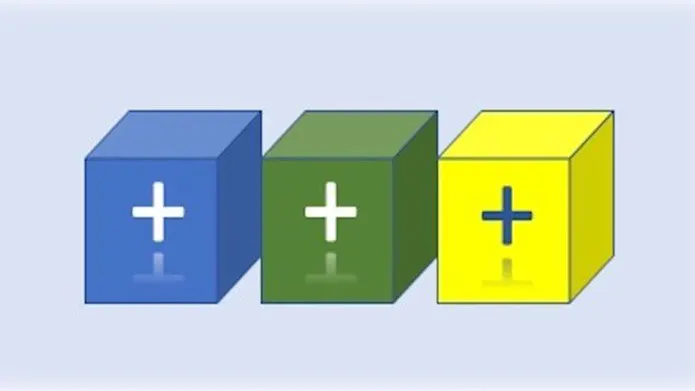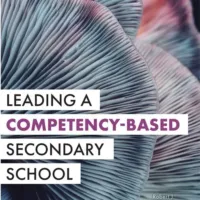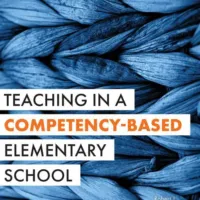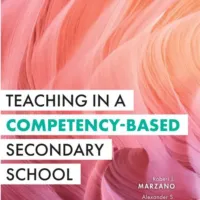
Question:
Should a student produce 3-pieces of evidence before I can determine they are proficient?
Answer:
The short answer is no.
We are often asked, “Do you need at least three pieces of evidence before you can mark a learner as proficient on a given measurement topic (Scale level 3.0 content in the proficiency scale)? If not, then what is the magic number? How many do I need before I can determine proficiency?
The answer is really, it depends. In a Marzano Academy, we encourage teachers to use the preponderance of evidence they have gathered during the learning opportunity, reflect it against the content of the proficiency scale, and use their professional judgment to determine what level the individual learner is demonstrating and what feedback can be given to improve their understanding of the concept or ability to execute the strategy without error. Teachers make the determination using classroom assessments they create that are valid, reliable, unidimensional, and at the correct level of cognitive complexity for the learner’s maturity and previous exposure to the content being learned. To ensure this, the school must build the assessment literacy of all teachers. We believe assessment to be the most vital task an educator undertakes. At Marzano Academies we encourage teachers to see that anything they ask a learner to do that produces evidence of thinking, is an assessment.
The idea of gathering three test scores before deciding if proficient learning has occurred comes from the traditional approach of using only end-of-unit or activity tests to capture evidence. While these are not discouraged in a Marzano Academy, we help the educator expand their view of what an assessment is. One such example is what Dr. Marzano calls the Probing Discussion. Here, the learner is asked a series of questions to filter down to what the learner actually knows, and what they understand or can execute without error. “A probing discussion occurs when a teacher has an extended conversation with an individual student about the content in a measurement topic as articulated in the proficiency scale for that topic” (Marzano, Norford and Ruyle, 2019).
The idea of needing the magic number of assessments also comes from the incorrect interpretation of summative and formative scores. When understood incorrectly, schools and teachers report formative assessments as practice only and summative as the actual tests. In this case, the summative assessments are the only scores that get entered for the learner. We feel differently at Marzano Academies. “We believe this is one of the biggest and most consequential mistakes” (Marzano, Kosena and Hubbs, 2022). The reason is the inherent errors that occur in all assessments. Regardless of how well the assessment is created, they all have errors. To determine a student’s level of learning performance based on the scores from a single assessment runs the risk of wrongly predicting their level of proficiency. How is this error addressed? By having numerous samples. In the case of some learners, a teacher might need more than three pieces of evidence to determine a student’s level of proficiency. For more information on this, see the New Art and Science of Classroom Assessment by Dr. Marzano.
When you think of assessment as a means to gather evidence for the level of learning a student has done versus how many points they need to earn the grade, it begins to become clear that three is not a magic number. Other types of assessments include the traditional test, essays, performance tasks, portfolios, exit tickets, observations, demonstrations, presentations, and many more options. As Dr. Marzano states, “This wide array of types of classroom assessment is possible only because the content within an Academy is stated as measurement topics with accompanying proficiency scales” (Marzano, Kosena and Hubbs, 2022).
While it is not typical, a teacher might be able to determine whether a learner is scoring at the proficient or higher level on a particular measurement with a single piece of evidence collected. But, can it be said that the learner is proficient, or did they do well on this single assessment. If you cannot answer in the affirmative, it simply means you need to collect additional evidence of learning. You are not going to need to create a second and a third test to get the evidence. You are not going to need to “find the points.” Instead, you can use any of the various ways to assess and gather evidence. If you want to sue some form of statistical analysis, like mean, decaying average, a power law, or such, you will need as many data points as possible. The more you have, the more accurate is your prediction of learning.
So, while three is a magic number according to Schoolhouse Rock, a teacher should collect evidence of student learning until they can confidently say, the learner is consistently performing at a proficient level or higher. If the teacher cannot make that determination, then they simply gather more evidence.
For more information on how Marzano Academies can support you, your school’s, or your district’s vision of competency-based education or to discuss any of these points further, don’t hesitate to contact us at: bill.zima@marzanoacademies.org or by visiting our website: marzanoacademies.org. We are here to help.
Resources:
Marzano, R. (2021). Competency-Based Education Folio Series: Element IVa Reviewing Content [Ebook]. Centennial: Marzano Academies. Retrieved from https://training.marzanoacademies.org/pluginfile.php/788/mod_folder/content/0/Folio%20-%20%20Element%20IVa%20-%20Reviewing%20Content.pdf
Marzano, R., Norford, J. and Ruyle, M., 2019. The new art and science of classroom assessment. Bloomington, IN: Solution Tree.
Marzano, R., Kosena, B. and Hubbs, B., 2022. Leading a competency-based elementary school. Bloomington, IN: Solution Tree.





